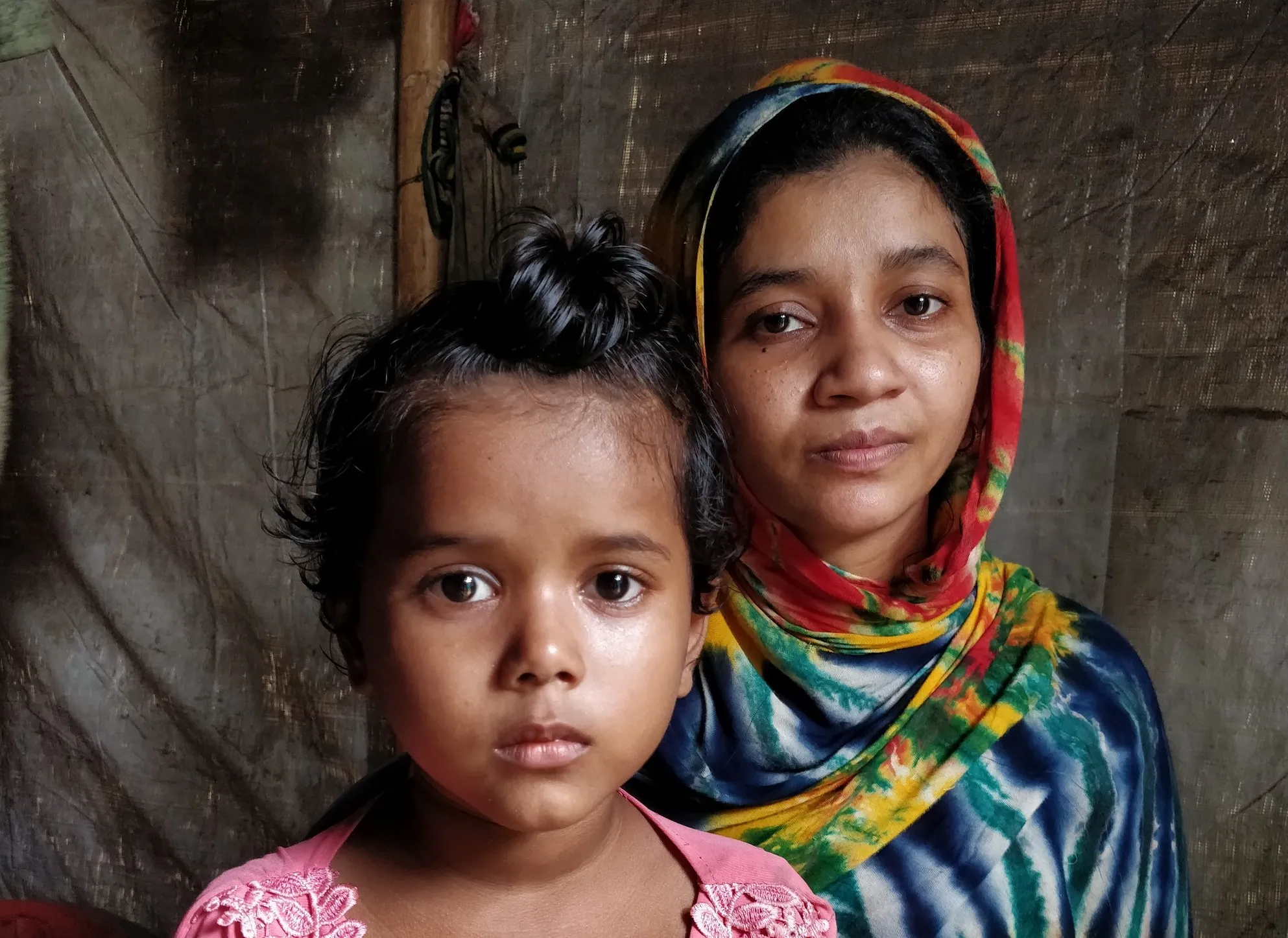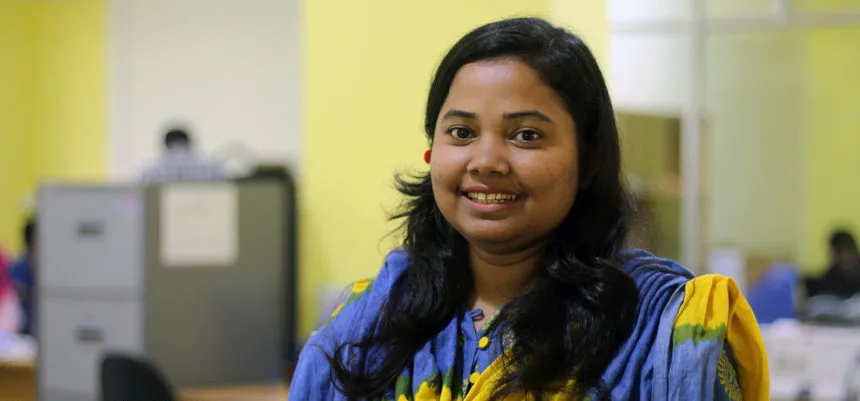Ananya Nandy is a reporting, documentation, and monitoring officer for CARE Bangladesh.
The best part of my job is helping refugees. Rohingya refugees have experienced many human rights violations in Myanmar. As a law graduate, this is an opportunity for me to work to protect them from harm, and make sure they have a dignified standard of living. I am also an advocate at Chittagong Judge’s Court. At court, I witnessed that women and adolescent girls do not have adequate privacy to express the violence committed against them before the court. I learnt the importance of maintaining the principle of confidentiality even in court.
My most memorable day at work was when I referred a pregnant refugee widow woman to the Community Health Centre for delivery. I accompanied the woman to the health center as she was afraid to go alone. The woman gave birth to a baby girl that day. That moment was very memorable for me and made me more determined to work for these vulnerable refugee women in the future.
My work can be difficult – in the very beginning working with refugees was very hard for me. I was working with them from the early days of the influx and it was overwhelming as I had to visit almost 50 households in a day to identify their needs at that time. Women and girls were in very a vulnerable position. Most did not have clean clothes or hygiene items, such as soap and sanitary towels. They were traumatized from everything they had faced. Such issues made me very emotional and I became fully dedicated to the wellbeing of the refugees.




